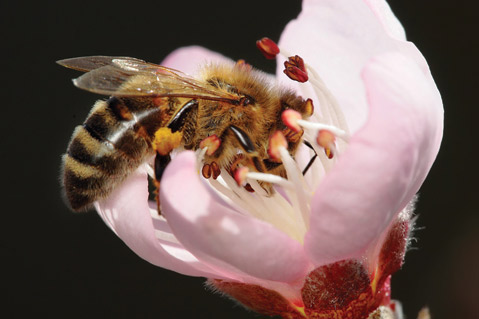Reflections on Flora
Scientists Say Gardening Is Good for Your Health

Gardeners may have known this for centuries, but one of the best reasons for gardening to hit the news in recent years is that it’s just plain good for you. The healthful benefits are many, and almost anyone, regardless of ability, can realize some of them.
Scientists have recently shown that just looking at plants and landscapes can reduce stress levels, lower blood pressure, and relieve muscle tension. Take a moment right now; look out the window at the nearest green, growing plant; contemplate its color, form, and texture. See how its stems and leaves are organized; imagine how its root system supports it all. Here is a complex living being that can actually make its own energy from the sun! If the scientists are right, you’re already feeling better than you were when you started reading this paragraph.
Gardening can stimulate all the other senses, too. The smell of earth, the many scents of flowers and aromatic foliage, can evoke strong emotions and memories. As you work in your garden, the feel of the sun, or fog, or breeze on your face and the variety of textures on leaves, bark, and fruits all stimulate your sense of touch and help reconnect you to your body. For those of us who spend many hours of the day in occupations requiring concentrated brain effort, this can be just the treat we need to unwind. Even if you live in an urban area, the rustle of the wind in the trees along the street and the cheep and peep of birds, insects, and frogs that somehow manage to find a niche in our gardens can provide a refreshing relief from the bustle of traffic and too-close neighbors.
The physical activity required by gardening and yard work can also make a significant contribution to your overall health. Stretching, lifting, and all the other repetitive motions associated with raking, digging, and planting are as good as many exercise programs at building strength, endurance, and flexibility. The benefits of regular exercise, as we all know by now, include reduction in the risk of serious disease such as heart disease, adult-onset diabetes, high blood pressure, and stroke. Weight loss, relief from depression, and maintenance of bone density through weight-bearing exercise are all possible byproducts of a gardening workout that won’t even feel like that much work.
A place to feel less stressed, more comfortable in your body, and invigorated need not be large or complex. Your garden may consist of only a potted plant or two on the windowsill or balcony. The benefits come not from acquiring some new object or worry, but in nurturing and caring for another living thing. Observing the growth and development of your plants will foster a link to nature at large. Gardening fosters a sense of responsibility and connection to the world outside ourselves that is increasingly lacking in a culture driven by commercial interests. Not only your own health and happiness but that of the community at large may be improved by the relatively simple act of planting a seed and helping it grow.
Teachers and health-care professionals are recognizing the variety of ways that gardening can benefit their charges. Horticultural therapy provides a form of emotional release and expression that can be of use in treating many ills, both social and physical. Addiction treatment facilities are installing gardens where their patients, by taking responsibility for the care of plantings, can begin to see the positive results of taking “ownership” of their actions. Teaching mentally and developmentally disabled people gardening skills can be one of the first and best steps in nurturing the physical, organizational, and communication abilities they will need to lead independent and productive lives. Elder residents of extended-care homes who have access to garden plots retain a greater degree of flexibility, lower blood pressure, and other positive emotional and health benefits. Even inmates of prisons and psychiatric patients with severe disorders are helped on the road to rehabilitation by an interaction with plants.
Recent immigrants or people displaced by acts of war or violence can often be helped to adjust to their new environments through gardening. Growing and harvesting familiar plants for food, medicinal, and spiritual uses can be especially helpful in reducing culture shock.
What should you plant in your garden? The message is this: It doesn’t really matter. It’s the planting and watering and enjoying your accomplishment that really count. So, get growing!



